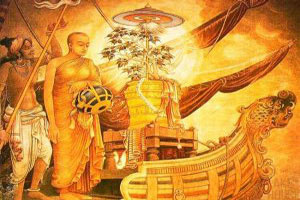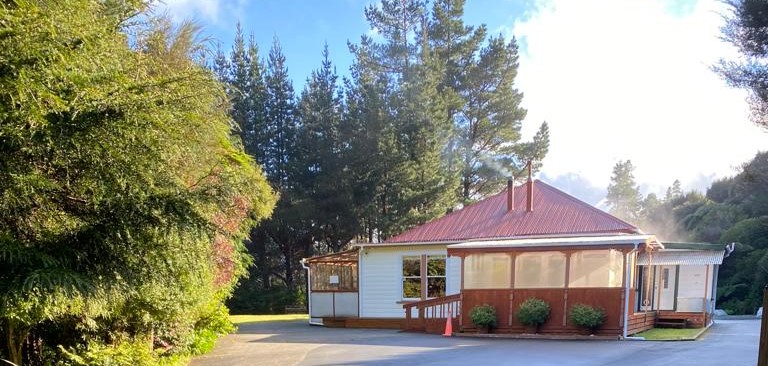
Sangamitta
Venerable Members of the Maha sangha, friends in the Dhamma!
1) It gives me pleasure to be invited and to participate in this memorial occasion, most historical and illustrious name ‘Sanghamitta’ is spoken. This name is reverberated and echoed everywhere, particularly in Sri Lanka. What we are talking about today is their utterly dedication to the Dhamma and their kindness by which we have so far been benefited . There is an important shadow behind you. It is what you have absorbed from your parents and grand parents. It brought all of you to this commemorating occasion and caused you to join together and to do some kind of wholesome things in the name Sangamitta. That is the sense of gratitude. Gratefulness. It has not just come to you. Yet, your mother fed you this quality, gratefulness with her milk. Still the gratefulness is living within you. That is why when the Sanghamitta day comes in every year, with that you have the thought to perform wholesome activities. And with that you are prepared to do this sort of things.
2) As monks today we find all the facilities and comfortable conditions to lead our monks life at ease. It is especially in our mother country. Everything suitable for monkshood is available. Now we know and experience how difficult it is when we go abroad as Buddhist monks in order to render our Dhamma service to others. Our dress is unusual to these people. Our shaved head is unusual to them. And the way we take alms and the bowl by which we take food is unusual. To my understanding, even in the past, they, the monks arrived in our country from abroad, would have experienced certain kind of hardships and difficulties as it was a new country to them. Yet not mentally but physically. There is no point and ground for them to suffer in mind as they have already calmed their mind up with the Buddha’s teaching. They came to Sri Lanka with a solid mind.
3) That was the unique message they brought to us. ‘Though we find problems in the body let not our mind to suffer from it’. All the physical things are subject to change and decay including our body. Worldly people let their mind to change accordingly. It is natural. Yet the Buddha’s teaching taught us to make it up side down. Even though the physical body becomes changed let not the mind to change by that means. To Sri Lankans especially venerable Arahant Mahinda and Arahant Theri Sanghamitta are just like two eyes with strong vision and sight. Before those two illustrious Noble Characters’ arrived to Sri Lanka then lived people ran blindly. In the darkness. They noble people came to the isle and applied and fixed a supreme kind of Dhamma eye in us in order to see the world in Dhamma perspective so that we could see the hidden reality in it and not to be deceived by it any more.
4) *The noble disciples of the Buddha appeared to the world with unique qualities. They were an unsurpassed field of merits for the then live worldly people. Surely they found an opportunity to offer them alms-food and other requisites as material objects. Above all, they found that fortunate opportunity to listen to the Dhamma from them. For some years they lived representing themselves as the field for the merits and passed away into Nibbana just leaving that unique fragrance of virtuous life to the world, as our great Teacher, the Buddha did. Yet, the fragrance of their virtue and kindness and right endeavour blowing still in the world just instilling good wholesome qualities in good peoples’ heart. Their virtuous fragrance still remain in implanting meritorious thought in us. It is the beauty of this Buddha Sasana. That is what we experience here today, in commemorating different events happened related to their lives, in different places and occasions.
5) When we commemorate Theri Sanghamitta’s arrival to Sri Lanka, the name of the Ven Ananda who was the assistant to the Buddha, comes spontaneous linked to this event. Because it was he, Ven Ananda who urged the Buddha to found the Bhikkhuni Order. Except Ven Ananda being graceful towards The Buddha’s step mother, Gotami, there would not have been a bikkhuni Order for womankind.
- Venerable Ananda had a long term loyal connection with the Bodhisatta in his previous existences. Ever since he got assurance from the Buddha Padumuttara appeared one hundred thousand aeons ago, to become an assistant monk for the present Buddha Gotama, he little by little got the close connection with the Bodhi satta. It was a great intimacy. We are able to find unique qualities from Ven Ananda’s life. If we are going to really appreciate and value them as Sons of the Buddha and if we are going to respect them with reverence we should imbue their virtuous qualities in us. That is the Buddha recommended way to respect and venerate the Nobles.
The Buddha appeared to the world and made a big reasonable different in the human thinking. It was a huge shock and a revolutionary change to then prevailed society. By that means The Buddha changed the way of thinking of mankind. Ven Mahinda arrived to Sri Lanka and did the same just following the Buddha’s guidelines creating new light in Sri Lankans. He converted the people from unrighteousness to righteousness, unwholesomeness to wholesomeness. But no weapon were used. No force. Only what he used was the truth. That is the great beauty of propagating of the Buddha’s teaching.
They worked hard really with the Dhamma in order to remove the dust in the average people’s eye. Then they found good eye sight, good vision. Then they were drawn to the Dhamma by themselves. No a kind of external force was needed. The people to be drawn towards the Dhamma under such a condition is inevitable.
As for the preserving the Dhamma, the following illustrious discipls of the Buddha payed a important and treameandous rall. They are Ven Ananda, Ven .Kassapa and Ven.Mahinda arrived to Sri Lanka. There are more yet these three are very important. Without these virtuous disciples no true Dhamma to the world.
1.A den of strife is household life And filled with toil and need, But free and high as the open sky Is the life the homeless lead.
Paropakaraya phalanti vruksha = The trees bear fruits for the sake of others
Paropakaraya vahanti nadya = The rivers flow for the sake of others
Paropakaraya dhuvanti gavak = Cow’s milking is for the sake of others
Paropakaraya idham sariram. = This life (body) is for the sake of others
There was a certain brahmin who could teach and educate and train children well. Occationally he had a walk around the area along with his studends. Yet he was so skillful to note something to make his students learn something out of it. One day when he was walking along with children, he found a mango tree full of mangoes in its every branches. On seeing it he pointed it to the children and said ‘my sons, do you see that mangoe tree full of mangoes. They said, yes. Then he said even if it bore a lot of fruit in it, a single fruit is not for that tree. All the bore fruit is for others. People come and pick fruits and quench their thirst and hunger. Birds come and sit on the tree and eat mango and fly away happily. In this manner it provides a treamedous service to the beings. Paropakaraya phalanti vruksa.
So, he continued his walk. Then, next on their way they met a river. He pointed it to the students and said, chidren look at this rever flowing huge amout of water. It is beautiful. Its beauty is not for it but for others to see it and enjoy. It has much water yet even a drop of water is not for the river. Others can come and have a wash and bath. They can drink and quench their thirst. They can irrigate water and can cultivate lands. Thus this river just serve treamendously to others. Hence, it flows for the sake of others. Then he continued his walk. Paropakaraya vahanti nadya.
Next he saw a man was milking a cow. Pointing milking cow to his students he said, my sons, this cow’s milk is not for her but for others. She is that way provides a treamendous help to others. Because of her milk a family can live. Milk gives butter chees and gee. Paropakaraya Dhovanti Gavak.
Eventually he pointed his body so that the children could understand theirs. My sons, look at this body. This life should be for others sake.

